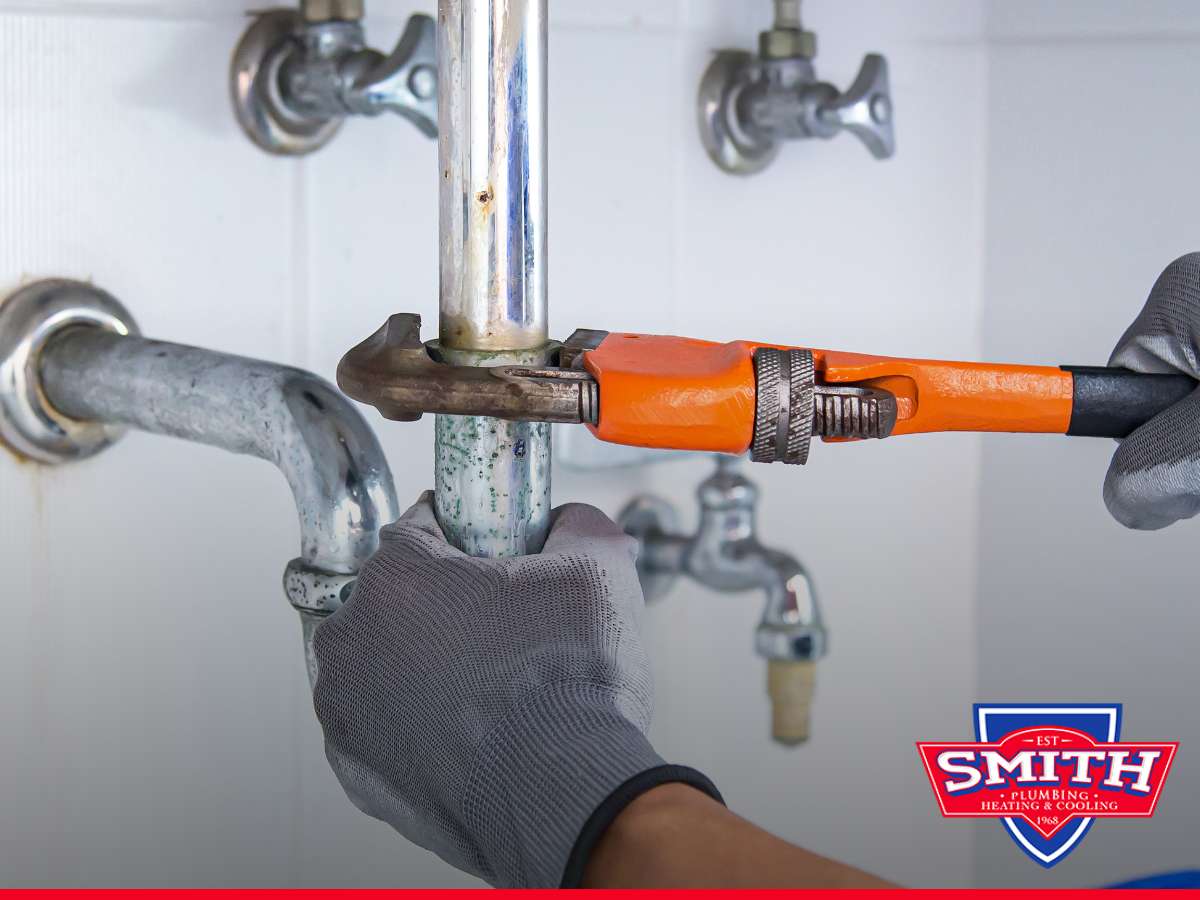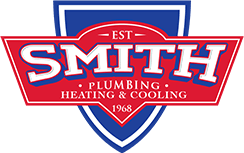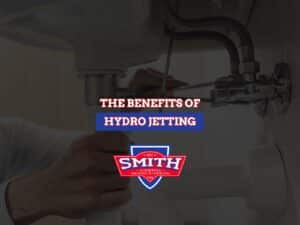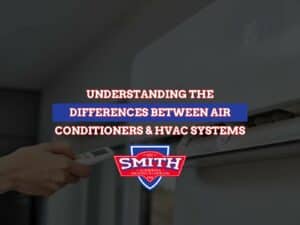How To Respond Quickly & Effectively To Plumbing Emergencies & Avoid Damage
Plumbing emergencies can appear anytime, causing inconvenience, damage, and stress. Whether it's a burst pipe, a backed-up sewer line, or a malfunctioning water heater, knowing how to respond quickly and effectively can make a huge difference.
That’s why we’ve prepared this brief guide with the first steps you should take when facing plumbing emergencies. Take note of them so that you’re ready before calling your trusted plumber.

How To Stay Calm & Assess The Situation In a Plumbing Emergency
In a plumbing emergency, your first instinct might be to panic, but staying calm is one of the most important things you can do. It’s easy to make rushed decisions when emotions take over, and those decisions can worsen the problem rather than solve it (not to mention it can put you in danger as well).
By taking a deep breath and assessing the situation, you give yourself the chance to think clearly and act strategically. This helps you:
- Identify the exact source of the issue
- Avoid hazards, such as electrical risks or slippery floors
- Prevent further damage by knowing which valve to shut off or which area to isolate
- Communicate more effectively when calling a plumber
Shut Off The Water Supply During a Plumbing Emergency
The next step is to locate the water supply and shut it off immediately. This action is a must as it prevents further flooding or damage to your property.
Turning off the water source quickly helps contain the situation, minimize potential water-related destruction, and safeguard your home's structure and belongings from huge damage.
Remember to stay calm while looking for the main water shut-off valve. It’s usually found:
- Where the main water line enters your house (often in a basement, garage, or utility area).
- Outside near the water meter, especially in warmer climates.
Turn the valve clockwise to shut it off. You may use the local shut-off valves underneath the fixture instead if the problem is isolated. Remember to do this while calling the plumber to fix the main issue.
Turning Off Electrical Appliances Is Crucial In Plumbing Emergencies
Water and electricity are a dangerous mix. If your plumbing emergency involves flooding or leaking near outlets, wiring, or electrical appliances, turning off the power in the affected area is essential for safety.
Unplug nearby devices, but only if it’s completely safe and the area is dry. The last thing you want to face is a short circuit, so always ensure the area is 100% dry before unplugging or even touching anything.
If water is near outlets, cords, or major appliances, don’t touch anything! Just go directly to your breaker panel and switch off the power to that specific area or, if unsure, to the entire house.
Avoid standing water until you're sure the electricity is off. Keep in mind that wet floors and active power sources can cause electric shocks.
ALWAYS prioritize safety before trying to clean up or make any repairs.
How To Contain Water Damage During a Plumbing Emergency
Once the water is shut off, the appliances are turned off, and the area is safe, your next move is to minimize the damage. Even a small leak can spread quickly and ruin floors, furniture, and personal items if left unchecked. Leak repair should be a priority to prevent further damage.
Here’s how to contain it:
- Use towels, buckets, and mops to soak up or catch water from leaks and puddles
- Place buckets or pans under dripping pipes or ceiling leaks
- Move furniture, rugs, and electronics out of the affected area to prevent stains, warping, or electrical hazards.
- If the leak is coming from above, poke a small hole in a sagging ceiling to let water drain into a container.
Why You Should Call a Licensed Emergency Plumber For Plumbing Issues
Having access to reliable plumber contact information is essential during emergencies. Once you have assessed the situation, do not hesitate to contact experienced plumbers promptly for quality plumbing services.
Professional assistance ensures the issue is addressed efficiently and effectively, minimizing damage and restoring normalcy to your home's plumbing system.
Plumbing Emergencies: Definitions & Common Causes
Definition
A plumbing emergency is an unexpected and potentially damaging issue within a property's plumbing system. These incidents range from minor inconveniences like leaks to severe pipe bursts that can cause significant property damage.
Common Causes
Plumbing emergencies arise from different sources, often due to system vulnerabilities or external factors:
- Deteriorating pipes: Corrosion or wear in pipes leading to leaks or bursts.
- Clogs: Blockages from debris buildup or improper waste disposal.
- Excessive water pressure: Strain on pipes, potentially causing damage.
- Outdated fixtures or appliances: Malfunctions triggering unexpected emergencies.
Effective Home Remedies For Urgent Plumbing Fixes Until You Get Professional Help
During a plumbing emergency, there are temporary measures you can take to address minor issues while waiting for professional assistance.
Handling Clogged Drains Or Toilets
When facing a plumbing emergency like a clogged toilet or drain, immediate action can help. Using a plunger is a quick way to dislodge minor blockages. DIY drain cleaning solutions can also be effective in dissolving clogs and restoring temporary water flow until a professional arrives.
FHowever, it's important to avoid using harsh chemicals that could damage your pipes. If the clog doesn't clear or gets worse, seeking help from a professional plumber is recommended.
Fixing Small Leaks
Apply sealing compounds or specialized tapes to temporarily contain minor leaks. This temporary fix can prevent further water damage and provide time until professional plumbers can conduct a permanent repair.
Keep in mind that while these temporary solutions are beneficial, they are not long-term fixes. It's essential to seek professional assistance for better repairs that solve the root cause.
Temporary Solutions
If a specific area is affected by a leak or plumbing issue, consider shutting off the fixture or valve related to that area. This action helps contain the problem, limiting its spread and reducing potential damage to other parts of your property. Once again, don’t forget to contact the professionals afterward to get proper solutions.
Essential Tips For Maintaining Your Plumbing & Avoiding Emergencies
Maintaining a working plumbing system and preventing unexpected problems that can interrupt daily routines requires proactive measures to avoid plumbing emergencies. Here’s how you can do it:
- Regular maintenance: Scheduled inspections and maintenance checks allow you to detect potential issues before they escalate into major problems. Proactive measures such as cleaning drains, checking for leaks, and examining pipe conditions help maintain the system's functionality and identify any underlying concerns.
- Upgrading plumbing systems: Consider upgrading older plumbing fixtures or pipes as a proactive measure against future breakdowns. Outdated components are more susceptible to wear and failure.
- Monitoring signs of trouble: Remain vigilant and attentive to signs that may indicate potential plumbing issues. Keep an eye out for water stains, dampness, reduced water pressure, or unusual noises. These indicators could signify underlying problems within the plumbing system.
Immediate Solutions For Plumbing Emergencies: A Fast Action Plan
Are you facing a plumbing emergency? Stay calm and contact Smith Plumbing for fast help. Our certified plumbers have years of experience delivering top-notch Mesa plumbing services. From leaks to burst pipes and any other plumbing problem, we have the expertise to resolve it quickly and effectively. Contact us now!


